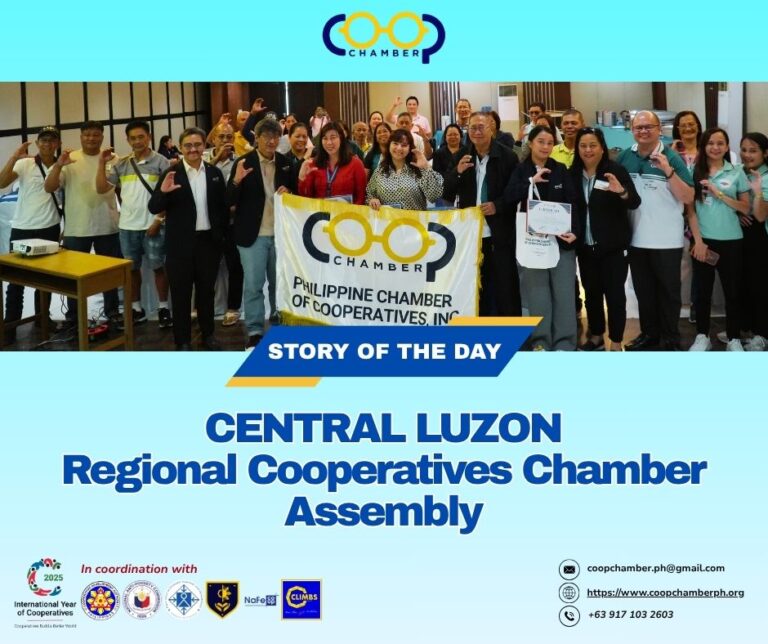In the evolving landscape of cooperatives, balancing democratic principles with the need for modernization is at the heart of current policy discussions. The proposed amendments to the Philippine Cooperative Code (RA 9520), particularly around the introduction of share voting and adjustments in federation shareholding, are receiving mixed reactions from cooperative leaders and policymakers. While proponents argue that these changes can modernize cooperatives, increase capital and enhance scalability, organizations like the Philippine Chamber of Cooperatives Inc. (Coop Chamber) strongly oppose certain aspects, citing the need to protect the core values of cooperativism.
The Case for Change: Attracting investment and promoting growth
Advocates of the proposed changes believe that introducing a share-based voting system could make cooperatives more attractive to members who have the financial capacity to invest. In a corporate model, voting power is often tied to share ownership, meaning the more shares a person holds, the more influence they have in decision-making. Proponents see this as a way to stimulate cooperative growth by incentivizing members to invest more capital.
Additionally, some argue that cooperatives, particularly large federations, need more flexible financial structures to remain competitive. One proposed change allows up to 40 percent shareholding in federations, albeit without voting rights. Supporters see this as a middle ground—allowing more significant financial contributions without threatening the democratic governance of cooperatives. By pooling resources in this manner, federations could be better equipped to handle larger projects and expand their influence in national and international markets.
For smaller or emerging cooperatives, these changes could present opportunities for growth and resource mobilization. Cooperative federations could become powerful platforms for service-oriented cooperatives to access new markets and invest in digital transformation, for example, without needing to fully corporatize.
Protecting Cooperative Identity: The case against share voting
On the other side of the debate, the Coop Chamber firmly opposes the introduction of share voting. At the core of this opposition is the principle of “one member, one vote,” a fundamental aspect of the cooperative model. Unlike corporations, cooperatives operate on democratic member control, ensuring that each member, regardless of their financial standing, has equal voting power. This principle is seen as the bedrock of cooperative governance, fostering equality, inclusivity and shared responsibility.
The Coop Chamber argues that introducing share voting risks transforming cooperatives into quasi-corporations, where a select few with higher shares can wield disproportionate influence. They fear that this shift could undermine the social mission of cooperatives, which prioritize member welfare over pure financial gain.
Additionally, the proposal for federation shareholding, even without voting rights, is met with caution. While it may not grant direct control, the Coop Chamber worries that large financial contributions could still lead to indirect influence over cooperative decisions, threatening the autonomy of smaller cooperatives within the federation. This, they argue, could result in power imbalances that contradict the cooperative movement’s values of equity and collective decision-making.
Striking a balance for the future
Ultimately, the discussion around these proposed policy changes represents a tension between modernization and the preservation of cooperative ideals. Proponents see an opportunity for cooperatives to grow, attract investment, and adapt to a competitive market environment. However, the Coop Chamber stands as a guardian of cooperative identity, emphasizing that growth should not come at the cost of democratic member control and equal representation.
For cooperatives, navigating these changes will require careful consideration of how they balance financial growth with the need to protect member equality and shared decision-making. As the debate continues, all stakeholders must engage in dialogue to find solutions that respect the unique nature of cooperatives while enabling them to thrive in a modern economy.
Read the full story: https://www.sunstar.com.ph/cebu/toral-investment-vs-equality-the-struggle-over-cooperative-reform




